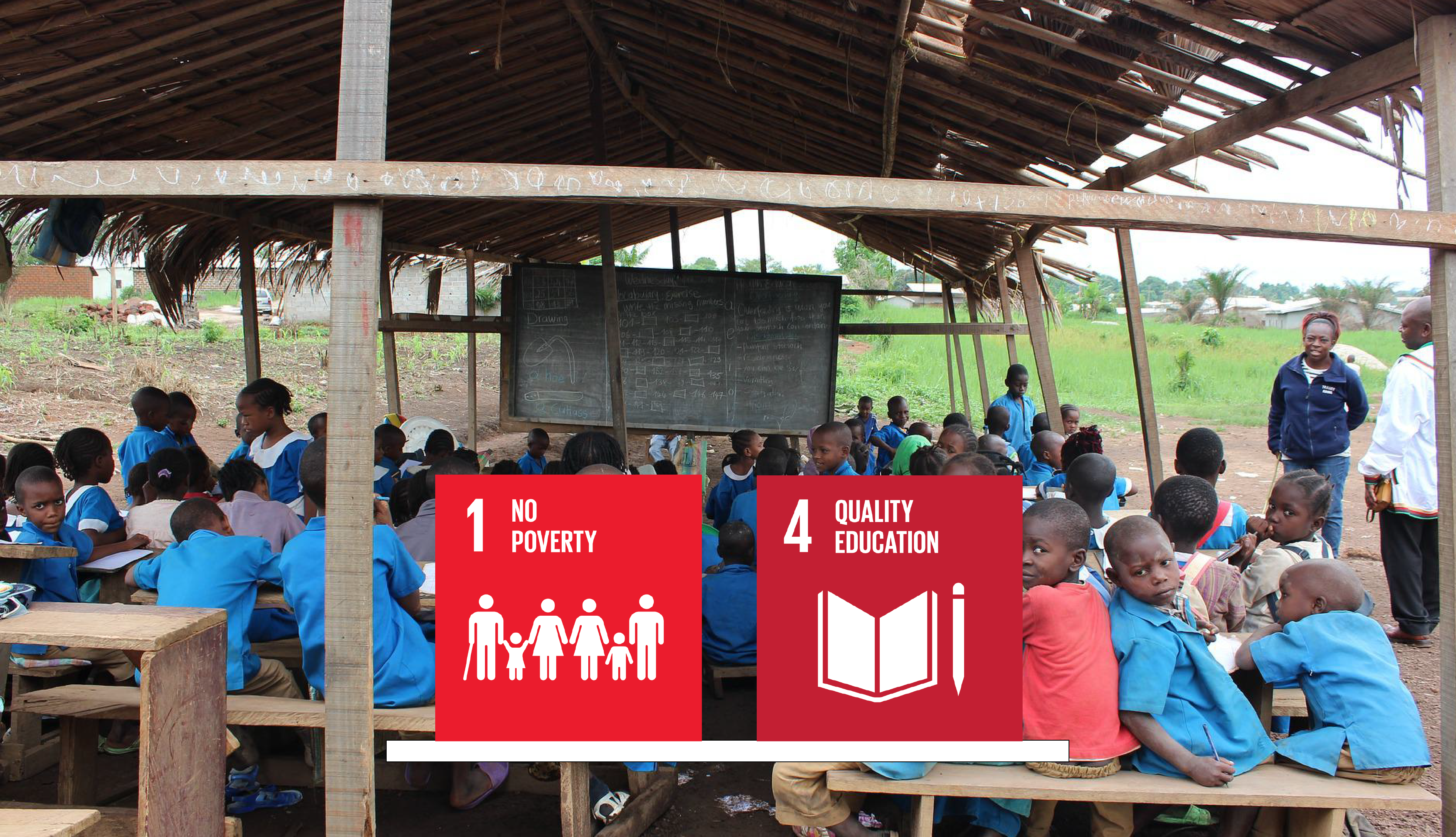COURSE DESCRIPTION
How can education contribute to a world with less poverty? How to contribute as individuals to the aims of SDGs 1 and 4?
Primary SDGs 1 and 4
SDG 1– End poverty in all its forms everywhere
SDG 4– Ensure inclusive and equitable quality education and promote lifelong learning opportunities for all
Problem Based Learning Methodology
1. Problematize to raise the analysis.
2. Group work on data collection, analysis, and presentations.
3. Dialogue with local interest groups and volunteering activities during individual classrooms.
PROBLEM STATEMENT
The causes of poverty must be seen closely related to a lack of education. It is a fact that missing (formal) qualifications reduce the chances to avoid the risk of poverty. Education and qualification can protect against poverty and inequality and even pave the way out of poverty.
Those facts do not only concern people in developing countries, but also in the so-called rich countries where the system of (higher) education is mainly accessible for those who come from high-income families. Up to now there is an important link between education opportunities and social origins.
Working questions:
- What are the aims of SDGs 1 and 4?
- What is the country’s status on SDGs 1 and 4?
- What global problems are there concerning SDGs 1 and 4?
- How to poverty and a lack of education interact?
- What (local) actions are there to fight poverty by providing education?
- How can students as individuals contribute (locally) to a world with less poverty and improved educational opportunities?
SHARED CLASSROOM
The activities can be divided in different shared and individual sessions.
Sessions
Lesson 1: Establishing contact
- Getting to know the partner
- Ice-breaker activity
Lesson 2: Getting in touch with “our” SDGs
- Youtube video (Poverty in the Classroom – YouTube) on interaction between poverty and education
- Groupwork to design the vicious circle shown in the video
- Meaning, aims and status of SDGs 1 and 4
Lesson 3 & 4: Search for (local) action
- Groupwork to research for…
o local actions (e.g. free tutoring, book bazaar)
o possibilities for individual contribution (give free private tuition, donate books)
o possibilities for school’s contribution (eg. bank for extra supplies, access to computer or magazines)
Lessons 5 & 6: Move to action – getting local
- Students (in groups/individually) plan a stand at school with different contributions, just as
o Information to raise awareness
o Coupons for tuition
Donated books or learning material and equipment
The class can be divided in mixed working groups from both countries or only from their own.
Lessons:
Shared Classroom 2
Individual Classroom 4
Technology needed:
- Internet connection
- A device to connect, a pc, cellphones or tablet
- Each participant has his/her own device and headphones if possible
LEARNING OUTCOMES
During the project, the students can develop different kinds of products:
- Powerpoint presentations
- Post-it wall or other types of school exhibitions
- Summary document with recommendations for action
- Local action
For the full Teaching module click on the green button above.
Course Features
- Lectures

